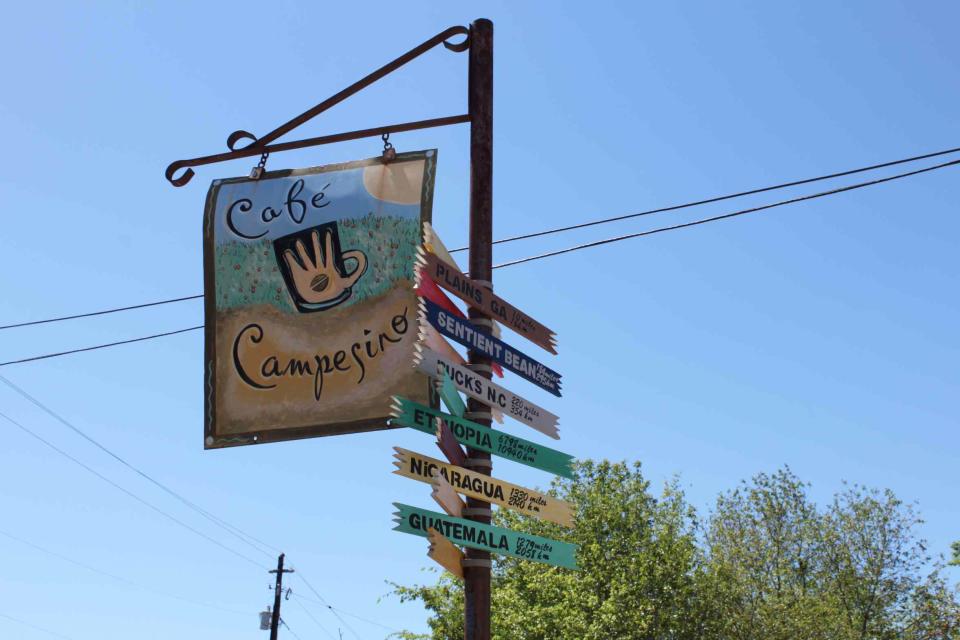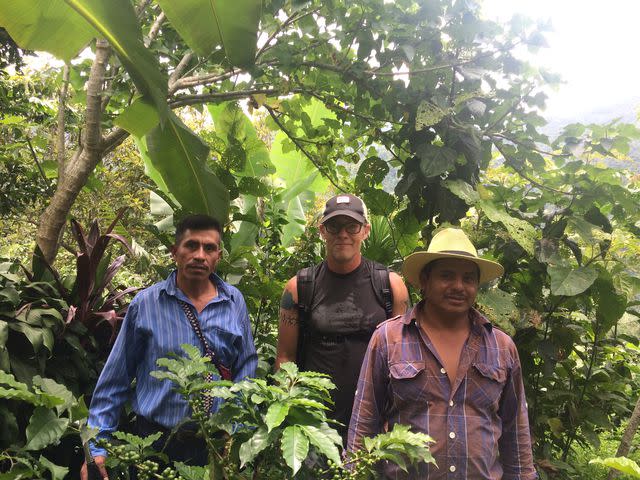This Georgia Coffee Cooperative Started With A Volunteer Trip
Have you tried Cafe Campesino in Americus, Georgia?

Caroline Eubanks
When browsing your local grocery store, you might see a dozen labels with the names “organic” and “fair trade.” But two decades ago, it was just regular or decaf. Long before the shift to consumers caring about where their coffee came from, Americus, Georgia’s Cafe Campesino was working with collectives of farmers. And it all started with a 1997 Habitat for Humanity volunteer trip to Guatemala and a group from the small Southern town.
Bill Harris met local farmers who highly prized their humble coffee plants. It was then that Bill Harris realized the importance of these small fruits and how little the farmers were valued in the production process.
“[He] had the opportunity to meet small-scale coffee farmers in the community where they were living,” said Matt Earley, the company’s Director of Sales, Marketing, and Community. “The impression that it made on him was that small-scale coffee farmers were really, in Guatemala and all over Latin America and the world, were really struggling to stay on their land, and that's something that we're still working and dealing with today.”
Despite having no experience in the industry, he purchased as much coffee as he could to bring home and sell to small roasters out of his VW bus. The rusting heap of metal still sits outside the original roaster building as a reminder of the humble beginnings.
“What farmers get paid in general for their coffee is very, very low. It doesn't at all reflect their basic expenses, their labor, or the value of their expertise. Bill came back motivated to try to do something to help the farmers that he met, and later other farmers, get into better markets for their coffee,” Earley said.
Harris founded Cafe Campesino as a roaster, establishing a direct trading relationship with the farmers like those he’d met in Guatemala. From there, he created Cooperative Coffees to work with farmer cooperatives to buy and import green beans, pay them fairly for it, and sell directly to like-minded roasters. This is what made Cooperative the country’s first and only fair trade, organic purchasing cooperative for green coffee beans.
“Just like small farmers there banding together to have better market access and to be able to use their strength in the market to not have to sell to the lowest bidder, but instead work together to find better markets and to give better deals on transportation for their coffee processing, Bill and the other roasters figured out a way that, when they all banded together, once they put their economic power together, they could afford to bring coffee to the United States and they were able to cut out the commercial importers,” Earley said.
Even though Harris is no longer involved in daily operations, Cooperative continues to be a large part of the company’s ethos, helping farmers get paid fairly and diversify their crops, not to mention buying millions of pounds of coffee every year between all of the roasters.
“I believe there's 24 now, small-scale coffee roasters in Canada and the US who are buying from the same farmers, some of whom are in the same places that Bill and the others worked with in the very beginning.”

Cafe Campesino
While other coffee companies are based in big cities, Americus remains at the heart of what makes Cafe Campesino unique. The company will soon be moving into the town’s historic Greyhound Trailways bus station, becoming the first business to welcome arriving visitors.

Cafe Campesino
“There have been so many people in Americus who have, at different times, supported us in different ways,” says Earley. “Cafe Campesino wouldn't be Cafe Campesino without being in Americus,” Earley said.
The next time you sip a steaming hot mug of Cafe Campesino coffee, whether in Americus or at one of the partner shops around the country, you can be sure that there are no more than five steps between the coffee plant and your cup and that both the farmers and employees are paid fairly.
For more Southern Living news, make sure to sign up for our newsletter!
Read the original article on Southern Living.

